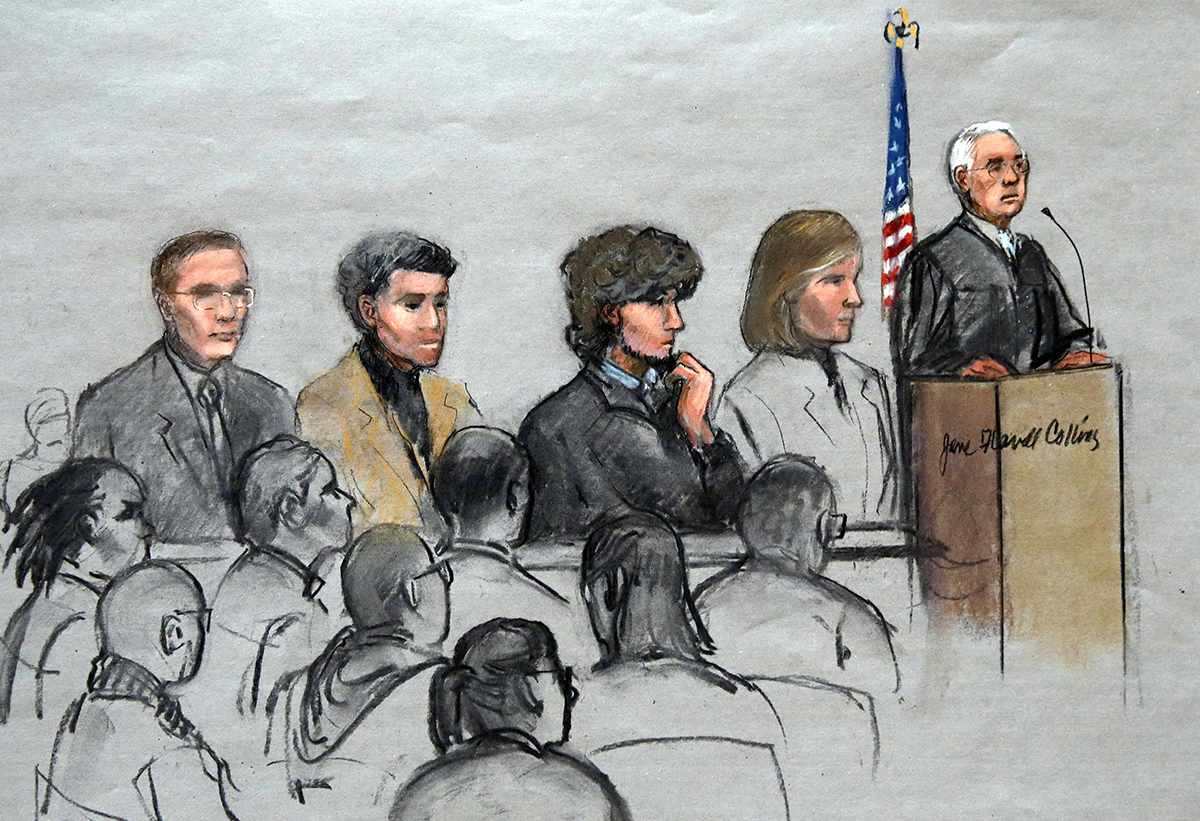The Tsarnaev Jurors Had Good Questions for the Judge

ASSOCIATED PRESS
If there’s no difference between “aiding” and “abetting” a crime, why are the jurors in the trial of Dzhokhar Tsarnaev being asked to determine whether he both “aided and abetted” his brother in bombing the Boston Marathon?
During jury deliberations, we have little to do but wait and wonder what the jury might discussing. Usually, our only glimpse comes in the form of the jury’s questions for the judge. This morning, the jury asked Judge George O’Toole two questions. The first focused on the meaning of “conspiracy.” The second: What is the difference between “aiding” and “abetting”? The phrase appears twenty-some times in the list of the 30 charges of which Tsarnaev is accused, so it’d be good to get the meaning straight.
Practically, the judge told them there’s no difference. Aiding and abetting together form “a single concept,” which means that someone intentionally helped another person commit a crime. That’s the short answer. Linguistically, though, the jurors’ question gets at a good point. “Aiding” and “abetting” do, essentially, mean the same thing. A writing teacher would tell you there’s probably no good reason for both to exist alongside one another. So why do we see them paired so often?
The phrase “aiding and abetting” dates, according to Wikipedia anyway, to a 1909 law as part of a long list of synonyms. (“Whoever aids, abets, counsels, commands, induces, or procures the commission of an offense…”) John Adams had a theory about the persistence of redundant phrases and long lists of similar words in legal language. “I hope… that common sense in common language will, in time, become fashionable. But the hope must be faint as long as clerks are paid by the line and the number of syllables in a line.” Clerks wanted laws to be longwinded because they stood to earn more money. Lawyers wanted laws to be difficult to interpret because it insured their job.
That Adams quote and those theories are put forward by the authors of “Lawtalk: The Unknown Stories Behind Familiar Legal Expressions.” But there’s a less nefarious reason for the redundancies, too, the authors add:
The fundamental legal rationale for redundancy, though, is simply this: it is better to be safe than sorry. Lawyers are paid to make documents airtight, and they work with the knowledge that other lawyers down the line may be paid to try to poke holes in them. Including two or three words that mean essentially the same thing protects against a specious argument that some shade of meaning was not covered.
So what Judge O’Toole might have told them, if he were feeling longwinded, is that lawyers are covering their own asses by putting phrases like “aiding and abetting” into laws and criminal charges. Still, you can see why a jury of non-lawyers might be confused.


